How We Recycled Old Uniforms Into New Caps In Thailand
At FedEx, we’re working hard to put sustainability at the center of our business. In Thailand, we’re collaborating with a local upcycling business to transform retired uniforms into new caps for local couriers.
At FedEx, our job is to connect people and possibilities across the world as responsibly and resourcefully as possible. Around the globe, we’re on a journey to deliver a more sustainable future for our customers and team members by seeking new and innovative ways to lessen our impact on the environment.
When it comes to delivering impact, no step is too small. In Asia Pacific, our teams are coming up with as many eco-friendly ways as possible to reduce carbon emissions, and help us reach our goal of carbon-neutral operations by 2040.
FedEx frontline team members are given a new uniform every year. But there's just one problem. The old uniforms pile up. We asked: what alternatives can we find for disposing old uniforms more sustainably
When it comes to delivering impact, no step is too small. In Asia Pacific, our teams are coming up with as many eco-friendly ways as possible to reduce carbon emissions, and help us reach our goal of carbon-neutral operations by 2040.
Giving old uniforms a new lease of life
FedEx frontline team members are given a new uniform every year. But there's just one problem. The old uniforms pile up. We asked: what alternatives can we find for disposing old uniforms more sustainably
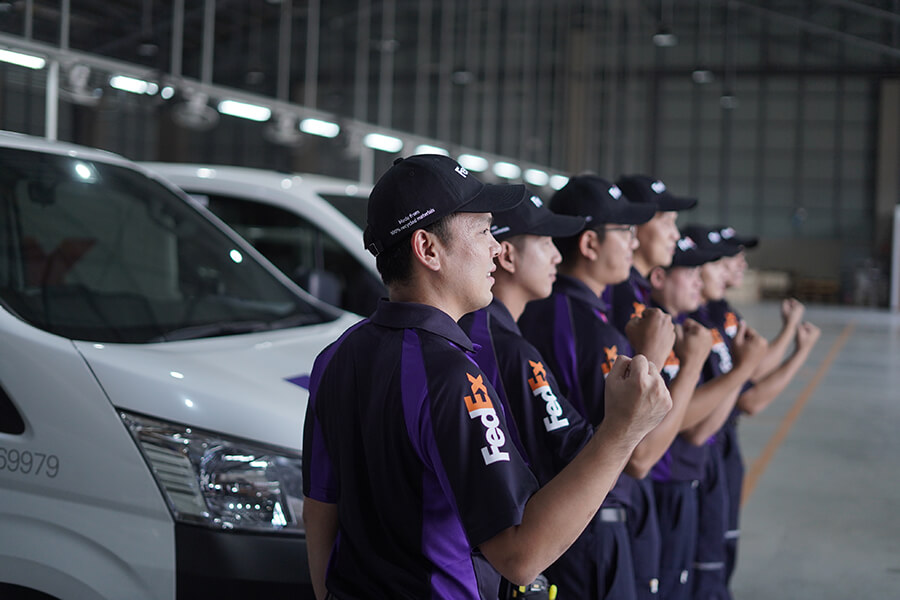
One market where we've started to tackle this is Thailand, collaborating with recycling expert SC Grand. Certified by various global organizations, SC Grand has over 60 years of experience recycling used clothes into sustainable textile products.
By identifying a local sustainability partner, we can benefit from their shared expertise on how to minimize our environmental footprint.
By identifying a local sustainability partner, we can benefit from their shared expertise on how to minimize our environmental footprint.
So far, more than 200 old uniforms have been transformed into fiber, yarn and fabric, and reproduced into over 700 FedEx caps. During the project, we conduct life-cycle assessments to measure our environmental impact as we go. So far, we've saved or avoided the equivalent of:
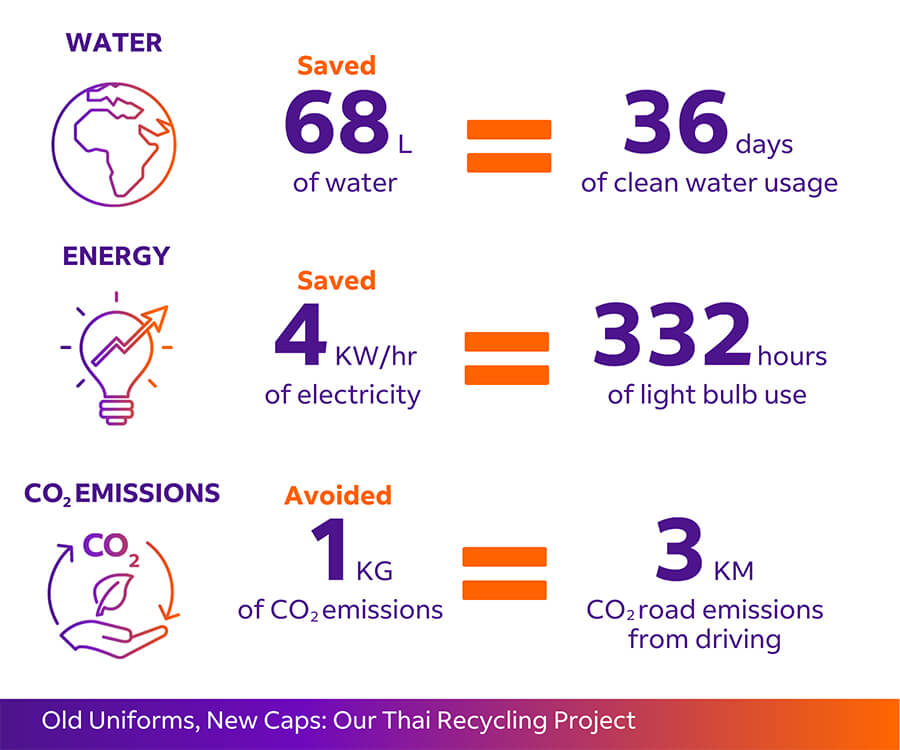
And our upcycling project continues to go from strength to strength. The local teams continue to gather old uniforms in preparation for our next initiative: transforming old uniforms into new socks for couriers.
Elsewhere across the organization, teams in Brazil are recycling old uniforms into blankets donated to homeless and animal shelters. And in the Philippines, FedEx uniforms are re-made into sustainable gifts such as notebooks sent to customers.
From an operations standpoint, we’re gradually transitioning to a 100% electric pickup and delivery fleet, and continuing to optimize efficiencies of our facilities and increase the use of sustainable fuels.
We are also taking responsibility to help clean up our beaches and oceans across the region. As for our services and solutions, we’re encouraging customers to adopt our digital shipping tools so they can go paperless where possible, and use recycled packaging and reusable packaging to reduce their environment impact.
Elsewhere across the organization, teams in Brazil are recycling old uniforms into blankets donated to homeless and animal shelters. And in the Philippines, FedEx uniforms are re-made into sustainable gifts such as notebooks sent to customers.
What else are we doing to work towards our net-zero goal?
From an operations standpoint, we’re gradually transitioning to a 100% electric pickup and delivery fleet, and continuing to optimize efficiencies of our facilities and increase the use of sustainable fuels.
We are also taking responsibility to help clean up our beaches and oceans across the region. As for our services and solutions, we’re encouraging customers to adopt our digital shipping tools so they can go paperless where possible, and use recycled packaging and reusable packaging to reduce their environment impact.
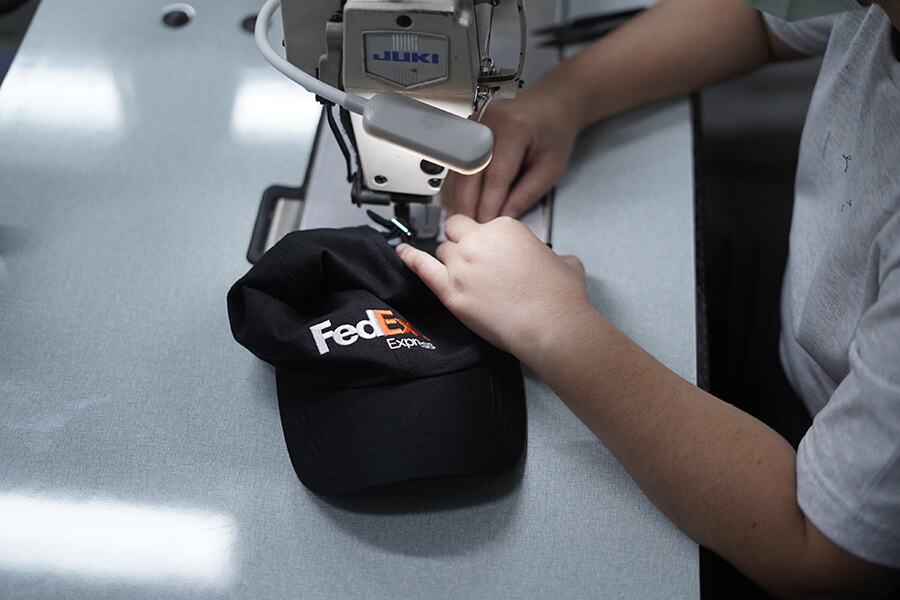
Transforming our operations to be more sustainable is a top priority for us. As we build the network for what’s next, we must protect our future, our people and our planet, one initiative at a time.
For more information on our sustainability projects and environmental policies, check out our latest ESG report.
For more information on our sustainability projects and environmental policies, check out our latest ESG report.
***










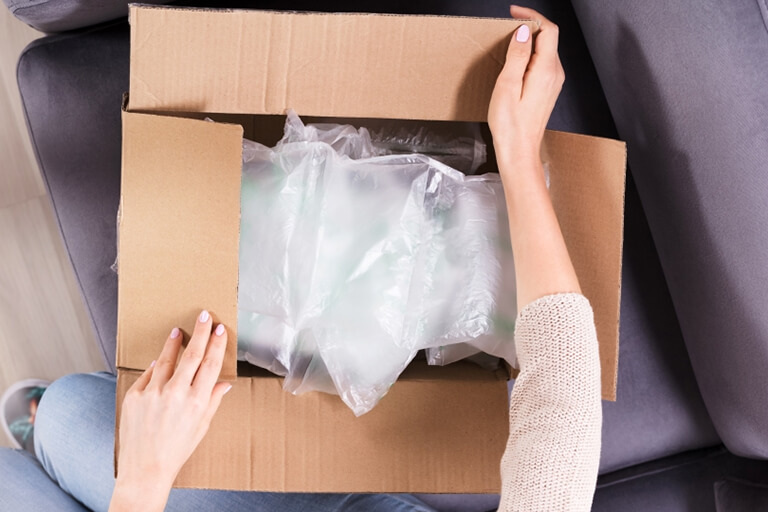



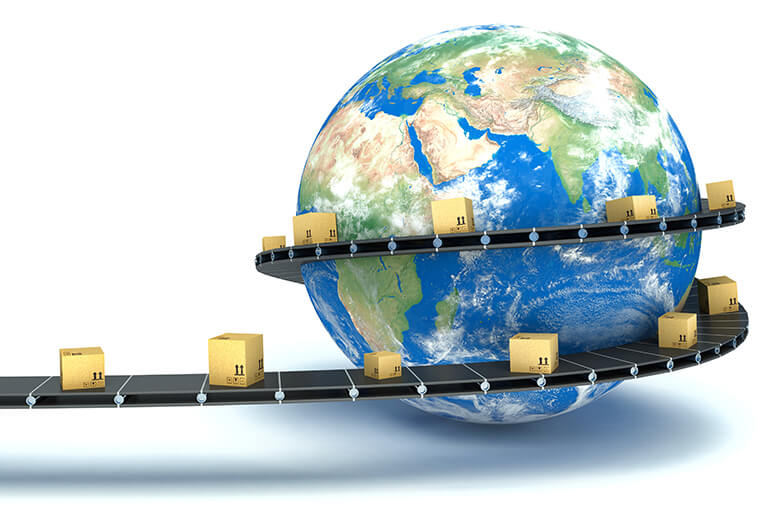



 The Latest
The Latest